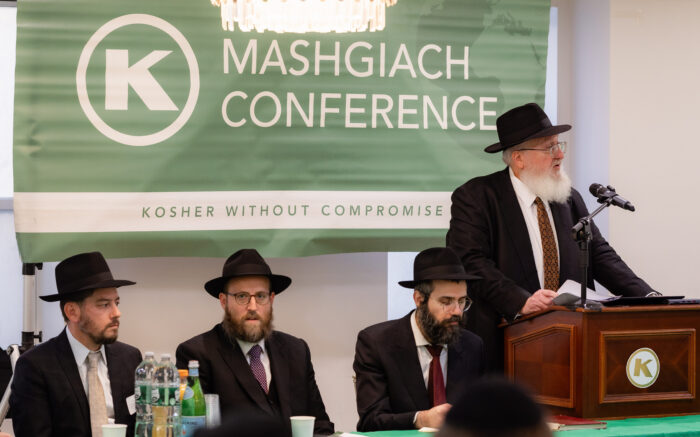Compiled by Dina Fraenkel
It is written in the Torah, “On the eighth day the flesh of his foreskin shall be circumcised.”1 Our Sages infer from this posuk that a bris milah may only be performed during the day and not at night.2 Before Matan Torah, however, bris milah could be performed at night because this law was not yet given to the Jewish people.
According to the Midrash, while the Jews were in Mitzrayim many of them had not been circumcised.3 After Hashem caused the scent of Moshe’s Pesach offering to permeate the air across all of Mitzrayim, the Jews came to Moshe and asked him to join in his offering. Moshe told them that only the Jews who were circumcised could take part in the sacrifice, so all of the Jews who were still uncircumcised agreed to have a bris milah right away that very night.
This Midrash shows that many Jews had a bris milah on the night of Pesach.4 Although it was permissible at that time to have a bris milah at night, why did Hashem make a circumstance that motivated them to have a bris at night rather than during the day, and why even before Matan Torah when it was required?
It is written that the night of Yetzias Mitzrayim was such a holy and special time5 that the “night shone like the day”6, so there are those Sages that say that it was as if the bris milah actually took place during the day.7 Even so, why was it so important that the circumcisions took place when the “night shone like the day”, when the men could have also circumcised themselves when it actually was daytime?
The entire Yetzias Mitzrayim was in a manner of “Pesach” – “leaping,”8 going above and beyond the physical limitations of nature. According to nature and the physical condition of the Jewish people in Mitzrayim, it was impossible for them to escape from Pharoah. Even more so, the Jewish people were stuck in a deep spiritual rut as well, where they were so encumbered by the depravity and immorality of the Mitzrim that they were chained to their current situation.9
It was only through G-dliness that illuminated and transcended the limitations of the physical world, where day and night were one and the same, that the Jewish people could break free of Egyptian bondage, both of the body and the soul.10 This is why the Jewish people had to escape Egypt, rather than leave, after making both the Pesach sacrifice (meaning “leaping”) and performing bris milah (a mitzvah that that is everlasting with no limitation).11 The real “leaping” of bris milah could only take place before Matan Torah, when it was truly boundless, and at a time when the night was like day, a time completely outside the normal realm, enabling the Jewish people to propel themselves out of Mitzrayim and into a place of holiness where all physical and spiritual boundaries disappeared.
May we all be blessed to know no physical or spiritual bondage and embrace the “leaping” and limitless connection to Hashem that He has given to the Jewish people and may we be released from our current golus with the revelation of Moshiach b’karov mamash.
1. Vayikra 12:3.
2. Toras Kohanim, Tazria; Megillah 20a.
3. Shmos Rabbah 19:5; ShirHaShirim Rabbah 1:12.
4. Also Rashi, Shmos 12:6; Baal HaTurim, ibid.
5. Zohar II, 38a.
6. Tehillim 139:12.
7. Responsa Yad Eliyahu, sec. 51; Simchas HaRegel (of the Chidah), sec. beginning Maaseh beRabbi Elazar.
8. Rashi, Shmos 12:11; Mechilta (and Rashi) ibid., v. 13; Likkutei Torah, Tzav, p. 13d; Toras Chayim, Shmos, p. 191a ff.
9. Zohar Chadash, beginning of Yisro.
10. Likkutei Torah, Tzav, p. 13d.
11. It is interesting to note that both of these commandments carry the punishment of kores if one fails to observe them. Something not found with other positive commandments. (Mishnah, beginning of Kerisus.)


 EN
EN  ZH
ZH  KR
KR  BR
BR  ES
ES  IN
IN  IL
IL 




